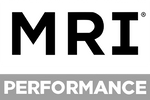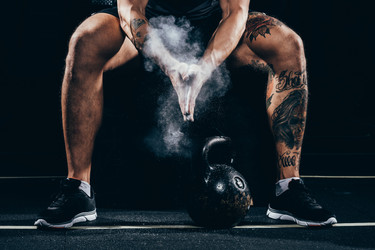The Comprehensive Guide to the Benefits of Creatine Monohydrate
Posted by Medical Research Institute on 19th Jan 2024
Creatine Monohydrate has long been revered as one of the most effective and researched supplements in the world of fitness and performance enhancement. Among the various options available, MRI Performance Creatine Monohydrate powder stands out for its purity, quality, and potential benefits. In this blog, we'll explore the numerous advantages of incorporating Creatine into your fitness regimen.
Enhanced Strength and Power
MRI Performance Creatine Monohydrate is renowned for its ability to increase phosphocreatine stores in muscles. This, in turn, enhances the production of ATP (adenosine triphosphate), the primary energy currency of cells. The result? Improved strength and power during high-intensity activities, allowing you to push your limits and achieve greater gains.
Improved Exercise Performance
Whether you're a weightlifter, a sprinter, or engaged in any high-intensity sport, MRI Performance Creatine Monohydrate powder can be a game-changer. When you exercise, you create micro-tears in your muscle fibers. As you recover, the micro-tears in your muscle fibers heal, and your muscles get stronger. Creatine helps activate satellite cells in your muscles, which helps the micro-tears heal. Studies have consistently shown that creatine supplementation can lead to enhanced performance in short bursts of intense activity, making it an ideal choice for athletes looking to improve their overall exercise performance.
Brain Health
Creatine has been recognized for its potential neuroprotective properties. It may help protect the brain cells from oxidative stress and other harmful factors. This neuroprotective effect could be valuable in preventing or slowing down the progression of neurodegenerative diseases.
Creatine plays a crucial role in the production of adenosine triphosphate (ATP), which is the primary energy currency of cells, including those in the brain. Adequate ATP levels are essential for various cellular processes, and the brain, being an energy-demanding organ, relies on sufficient ATP to function optimally.
Muscle Recovery and Reduced Fatigue
Creatine doesn't just benefit you during your workouts; it also plays a crucial role in post-exercise recovery. By replenishing ATP stores and aiding in the restoration of phosphocreatine levels, MRI Performance Creatine Monohydrate powder helps reduce muscle fatigue and accelerates the recovery process, allowing you to hit the gym again with less downtime.
Increased Muscle Hydration
Creatine has a cell-volumizing effect, drawing more water into muscle cells. This increased hydration not only contributes to muscle fullness and size but also creates an optimal environment for protein synthesis – a key factor in muscle growth.
How Much Water to Take with Creatine?
The most asked question among many creatine users is how much water to drink with creatine. A healthy amount of water for most people is around one gallon a day. Your body may need less or more water, depending on your exercise regimen's intensity. Outside training, the recommended 6-8 glasses a day will suffice. However, if you are using a pre-workout, in this case, creatine, you may want to slightly up your water intake. This is because some pre-workouts contain a high caffeine content and tend to act as a diuretic.
Some recommend up to 2-3 gallons of water; however, this is mere speculation and potentially harmful. Overconsumption of water tends to over-dilute the sodium levels in your bloodstream. Unfortunately, low blood sodium levels possibly lead to muscle cramps, delirium, coma, and worse, death.
Generally, a good number of weightlifters tend to add 4-7 pounds of weight in the first few days of using creatine. The weight gain is due to the water being pulled from the bloodstream and transported to the muscles. Because more water is transporting to the muscles, less water is available for the rest of the body. Therefore, proper hydration is essential.
As previously mentioned, 6-8 cups of water are the average drinking amount when out of training. However, when supplementing with creatine, you should drink an additional 8-10 cups of water daily, or slightly more, depending on your exercise regimen.
What Happens When You Stop Taking Creatine?
When you stop taking creatine, your creatine levels will gradually drop over the next few weeks. Your body will still make creatine naturally, but you may have side effects as you adjust to lower creatine levels. Which may include:
- Fatigue
- Loss of muscle mass
- Weight loss
A short-term decrease in natural creatine production
You could possibly maintain any added strength through regular exercise, but you likely won’t see continued improvement.
Safe and Research-Backed
MRI Performance Creatine Monohydrate powder is derived from pure, high-quality sources, ensuring its safety and effectiveness. The safety of creatine supplementation is supported by extensive research, with numerous studies attesting to its positive effects on performance and muscle health.
Convenient and Versatile
The powder form of creatine makes it incredibly convenient to incorporate into your routine. Mix it with water, your favorite beverage, or even blend it into your pre-workout shake for a seamless addition to your daily nutrition plan.
Conclusion
In the world of sports and fitness, every edge counts, and MRI Performance Creatine Monohydrate powder offers a powerful tool to enhance your performance. Whether you're aiming for strength gains, improved exercise capacity, or faster recovery, this supplement has the potential to take your fitness journey to new heights. Unlock your full potential with MRI Performance Creatine Monohydrate – because your journey to peak performance starts with the right fuel for your body.

